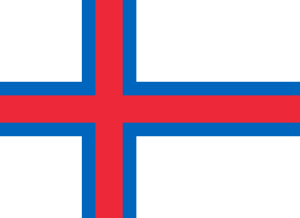Faroe Islands

The Faroe Islands is a self-governing entity within the Kingdom of Denmark. It is neither a member of the EU nor part of the Schengen area. The archipelago of 18 mountainous islands is located in the Northeast Atlantic and comprises a total land area of 1,399 km². The islands have around 53,000 inhabitants (38/km2) of which around 40% live in the capital Tórshavn on the largest island Streymoy. A sub-polar oceanic climateThe average weather we would expect over a long period of time (seasons, years, decades). Climate varies from place-to-place across the Earth. Climate is determined by long-term (over at least... More prevails.
The following information aims at providing an overview of the most common permit types relevant for scientists travelling to and working in the Faroe Islands.
National rules and regulations are given for the following categories:
- Cross border travel (persons, equipment, samples, chemicals),
- Access to specific areas,
- Permits to conduct fieldwork and collect samples,
- Field instrumentation,
- Safety equipment and
- Regional/local permits.
Additional information sources relevant for conducting science in the Faroe Islands are also listed.
The Faroe Islands have developed their own research permit information website, available at: https://www.euraxess.fo/faroe-islands/information-assistance/research-permits
Disclaimer: INTERACT takes no legal responsibility for the information presented here. These pages only address the most common permit types. Certain studies may require specialist permits not covered here. New regulations may also come into force, permit conditions may change and links may become outdated or no longer work. If you encounter broken links, significant permit updates or have suggestions for additional permit types we can include, please contact us at https://eu-interact.org/contact/.
